Travelers often ask about the best time to visit Малайзия, as timing significantly influences everything, from beach days to city sightseeing. With tropical weather across different coasts and Borneo, seasons vary by region, and so do crowd levels and prices. Understanding this helps visitors choose months that align with their plans, whether they seek calm seas, rainforest treks, or festival energy.
This guide keeps things simple and practical. It explains how the monsoon patterns affect each region, highlights when islands shine, and shows when cities feel most comfortable for walking, shopping, and food tours. It also points to key cultural celebrations that can enrich a trip or require a little planning around hotel availability.
Readers who prefer a clear route to the best time to travel to Malaysia will find month-by-month pointers, plus quick tables that compare regions at a glance. The goal is a confident plan, not guesswork, so travelers can book flights, pick hotels, and pack smart with the weather, events, and budgets in mind.
Understanding the Climate and Seasons for the Best Time to Visit Malaysia
Malaysia sits in the tropics, so temperatures stay fairly steady year-round. What really changes travel plans is rainfall. Two monsoon patterns shape Malaysia’s travel seasons, and each region feels them differently.
Key patterns to know
- Southwest monsoon [May to September]: Brings drier weather to the West Coast. Cities like Kuala Lumpur and Penang, plus Langkawi, often see sunnier days and calmer seas.
- Northeast monsoon [November to March]: Soaks much of the East Coast. Islands such as Perhentian, Redang, and Tioman face rougher seas, and many resorts pause operations.
- Borneo [Sabah and Sarawak]: Rain is more evenly spread through the year, with relatively drier windows from March to September in many areas. Wildlife viewing and rainforest trips are strong in these months.
Typical conditions
- Temperature: Commonly 24 to 33°C across the country.
- Humidity: High throughout the year, so light fabrics and breathable footwear help.
- Showers: Afternoon cloudbursts are normal even in drier months.
Regions at a glance
| Область | Better Months for the Weather | Примечания |
|---|---|---|
| West Coast (Kuala Lumpur, Penang, Langkawi) |
November to April | Suits city breaks and beach time, shorter showers |
| East Coast (Perhentian, Redang, Tioman) |
March to October | Clear water and good diving, but many places are closed in the monsoon |
| Борнео (Sabah, Sarawak) |
March to September | Good for rainforest treks and wildlife, expect some showers anytime |
This overview sets up the Малайзия weather by month guide that follows. Readers can match interests to conditions, then plan around the Malaysian monsoon season with fewer surprises.
Best Time to Visit Malaysia by Region
Because the weather shifts between coasts, knowing the right months for each part of the country makes trip planning much smoother. The best time to visit Malaysia depends on which side of the peninsula or island group travelers want to explore.
West Coast (Kuala Lumpur, Penang, Langkawi)
The West Coast enjoys the driest months from November to April. Days are sunny, making it great for beaches, street food walks, and city sightseeing. Kuala Lumpur’s climate stays warm, while Penang’s short evening showers help cool things down. Langkawi’s best time to visit falls between December and March, when the seas are calm and sunsets are clear.
East Coast (Perhentian, Redang, Tioman)
The East Coast shines between March and October. These months bring turquoise water and the calm conditions divers love. Resorts reopen after the Malaysian monsoon season, and clear skies return. November to February is best avoided here, as heavy rains can limit transport and close many island resorts.
Borneo (Sabah and Sarawak)
The weather is more consistent year-round, but the best time to visit Borneo usually falls between March and September. Travelers can expect drier forest trails and better wildlife sightings. Rain still appears, but it rarely lasts long enough to disrupt activities.
| Область | Ideal Months | Highlights |
|---|---|---|
| West Coast | November–April | City tours, island beaches, cultural events |
| East Coast | March–October | Diving, snorkeling, and peaceful resorts |
| Борнео | March–September | Rainforest treks, wildlife, adventure travel |
By understanding each region’s rhythm, travelers can choose the best Malaysian travel seasons and plan experiences with better weather, fewer crowds, and smoother itineraries.
Best Time to Visit Malaysia by Month
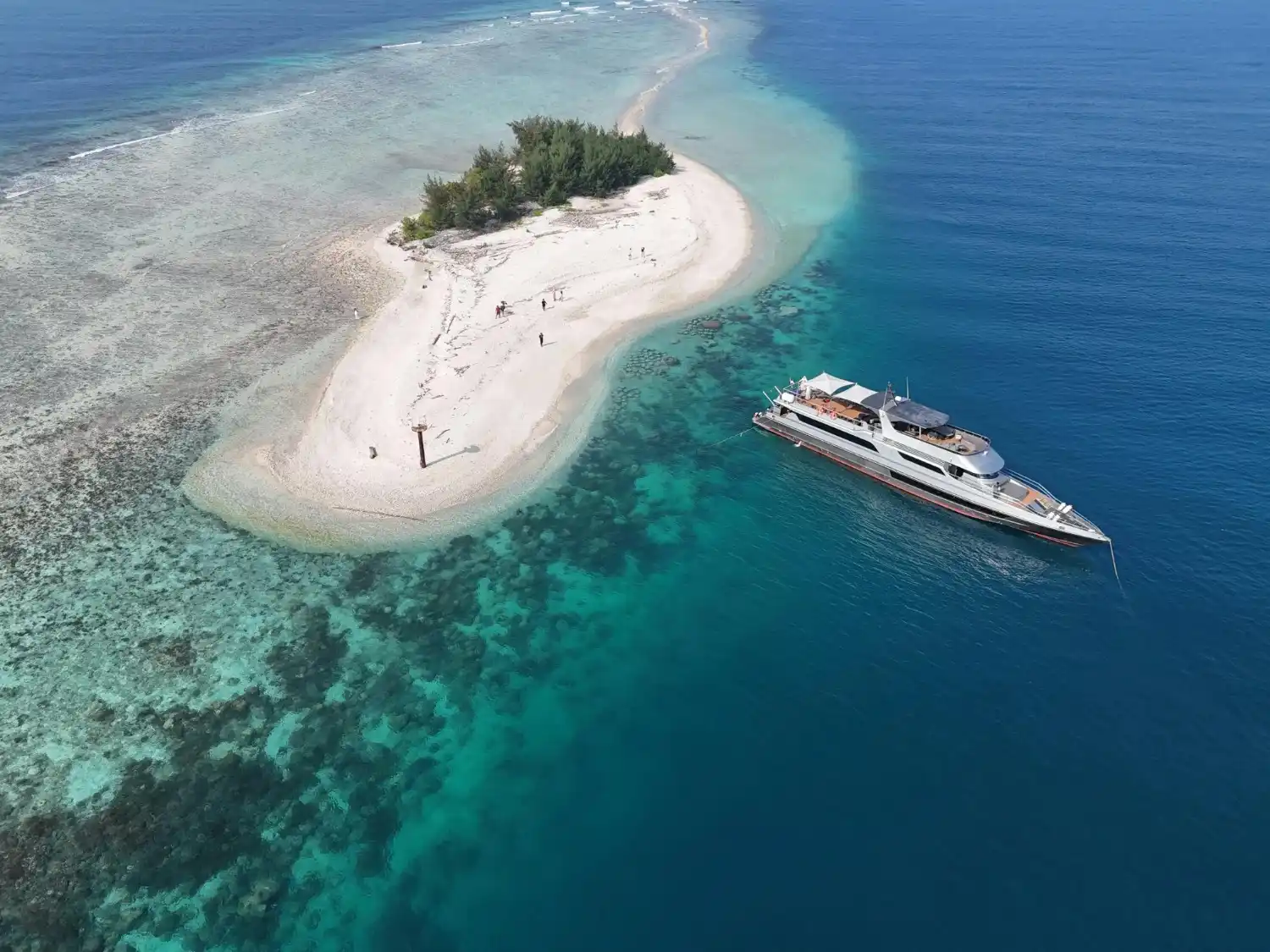
January
Best for: Island hopping on the West Coast and cultural discoveries in George Town
January is warm and sunny across the West Coast, making it the best time to visit Malaysia for beach escapes in Langkawi and Penang. The East Coast faces the Malaysia monsoon season, but Kuala Lumpur enjoys pleasant weather for sightseeing. Expect bright days, calm seas, and cool evenings—perfect for heritage walks or a sunset cruise.
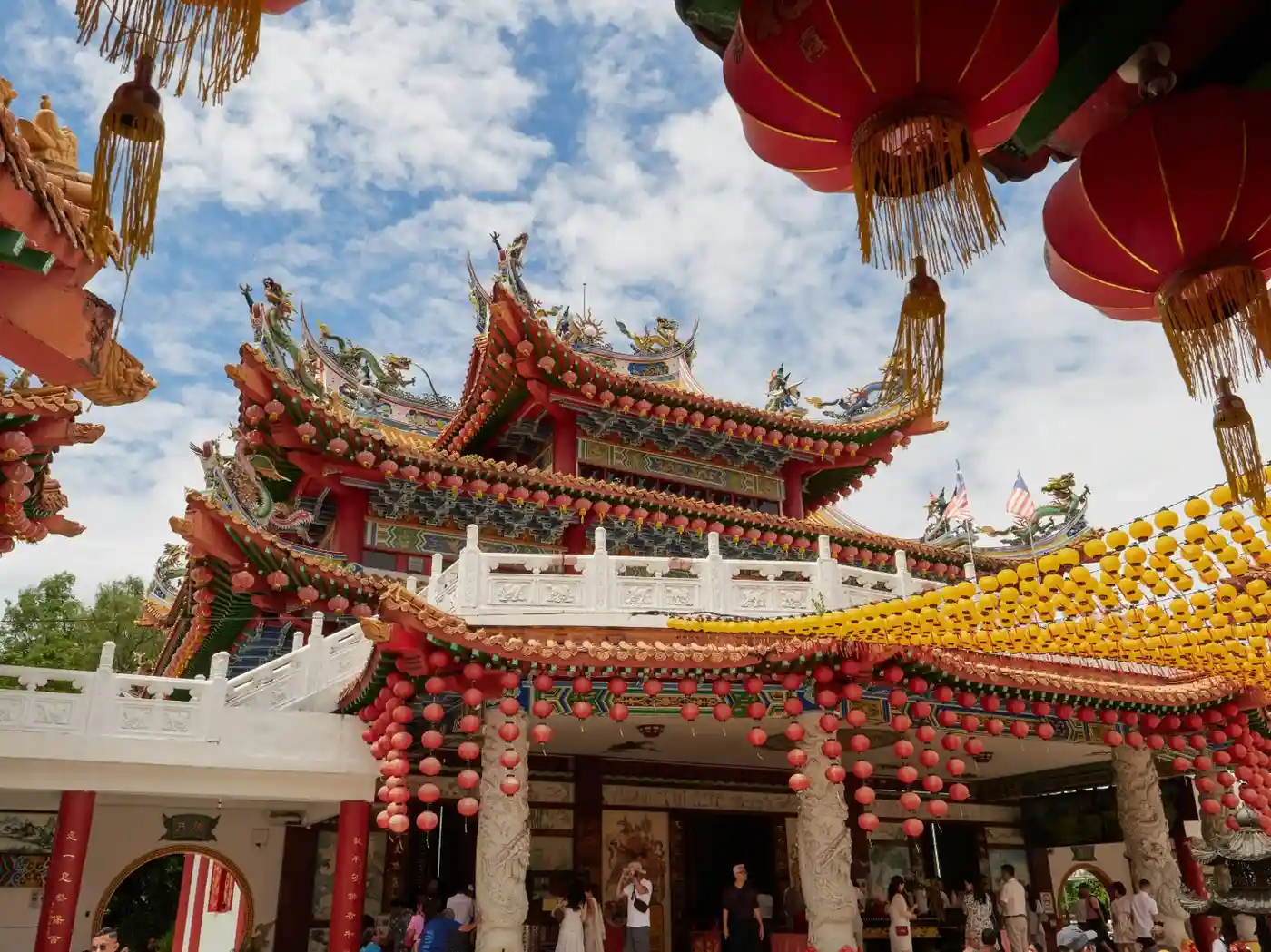
February
Best for: Chinese New Year celebrations, jungle exploring in Borneo, and tea fields in Cameron Highlands
February brings a festive buzz with Malaysia cultural festivals like the Chinese New Year. Fireworks and parades fill Kuala Lumpur’s Chinatown, while Borneo and the Cameron Highlands enjoy mild weather and clear skies. It’s a great month for hiking and wildlife watching with less rainfall.
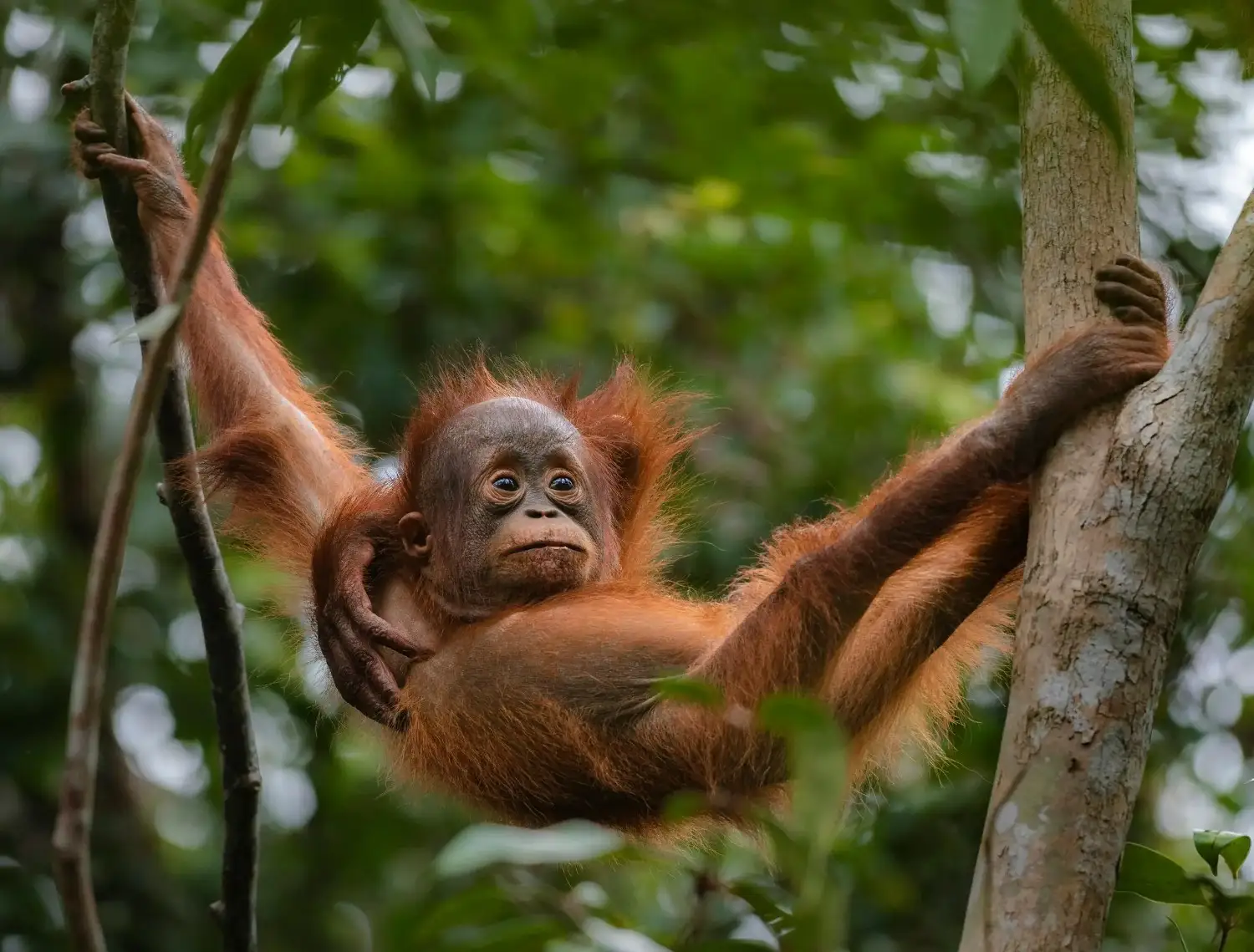
March
Best for: Whale shark and orangutan spotting in Borneo, diving, and island hopping on the East Coast
March marks the start of calm seas on the East Coast—ideal for snorkeling around Redang and Perhentian. Drier days in Borneo make jungle treks comfortable. For many travelers, March is the best month to visit Malaysia for wildlife and outdoor exploration.
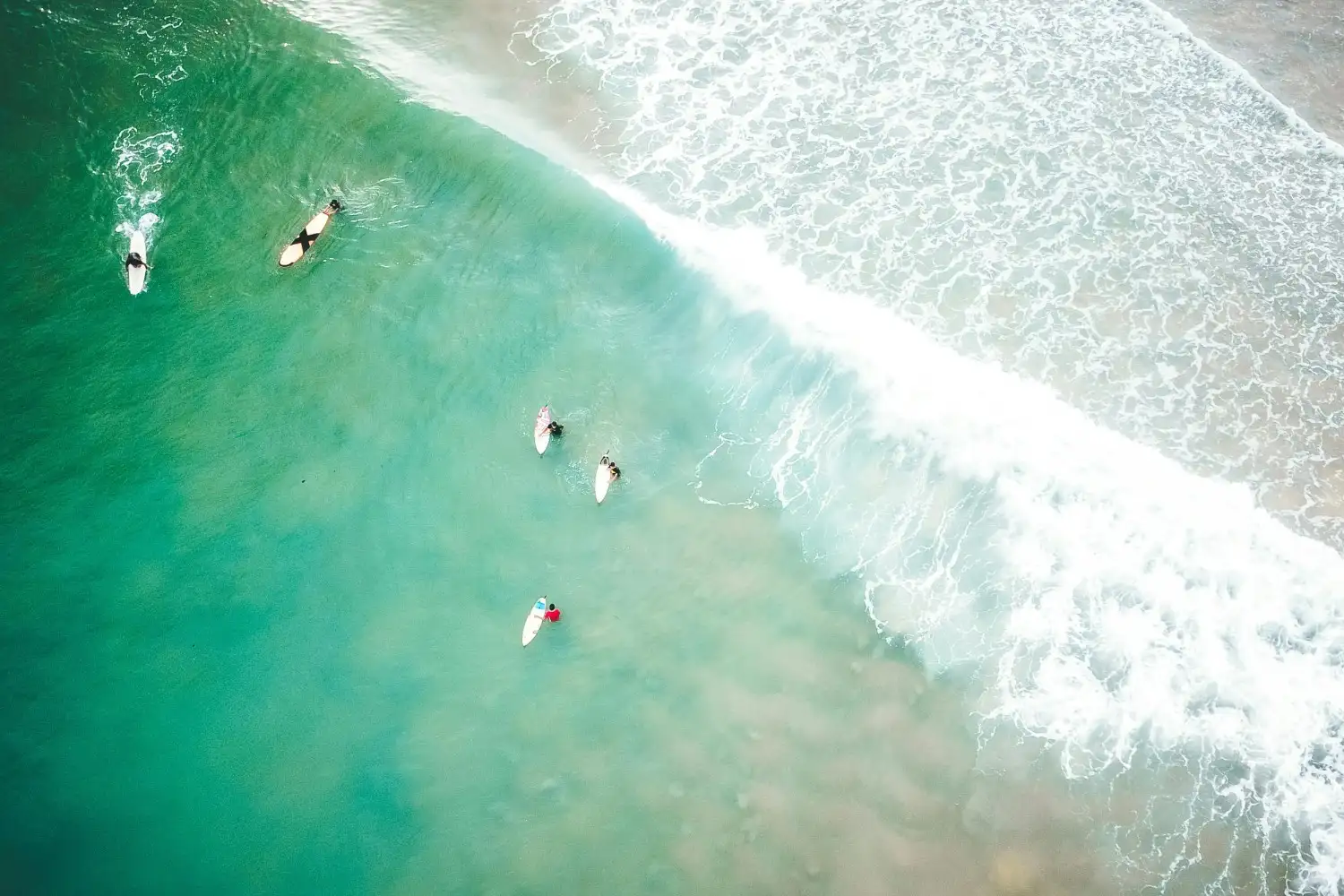
April
Best for: Beaches, rainforest walks, and fewer crowds
April is one of the best times to travel to Malaysia for balanced weather and smaller crowds. Penang and Langkawi are still excellent, while the East Coast continues to offer great diving. Warm, dry days make it perfect for beach relaxation and sightseeing.
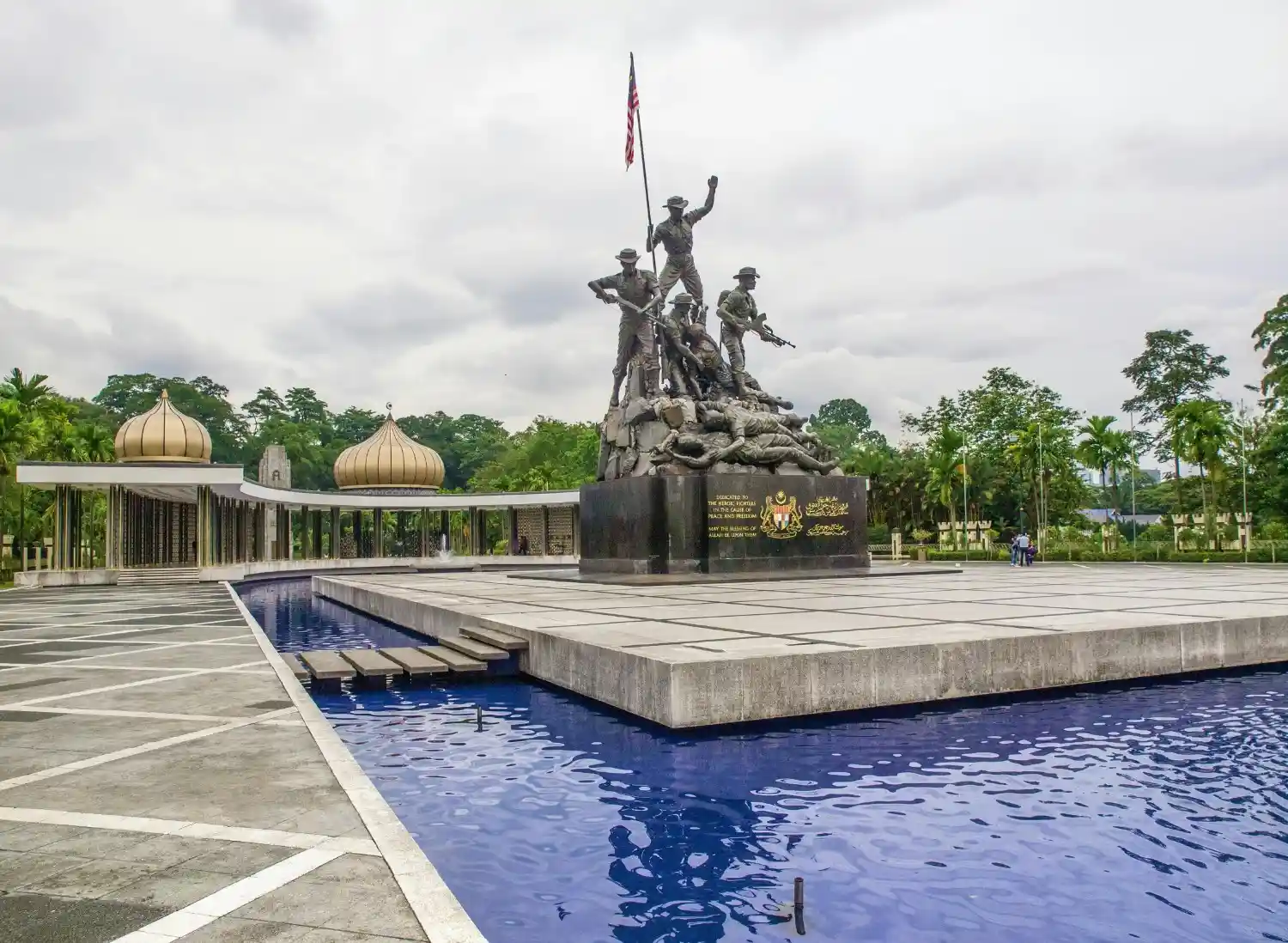
Может
Best for: National parks, hill stations, and food tours
May brings the Malaysia tourist season into full swing. It’s great for trekking in Taman Negara, tea-picking in Cameron Highlands, and food hunting in Penang. Short tropical showers appear but rarely last long, keeping travel easy and enjoyable.
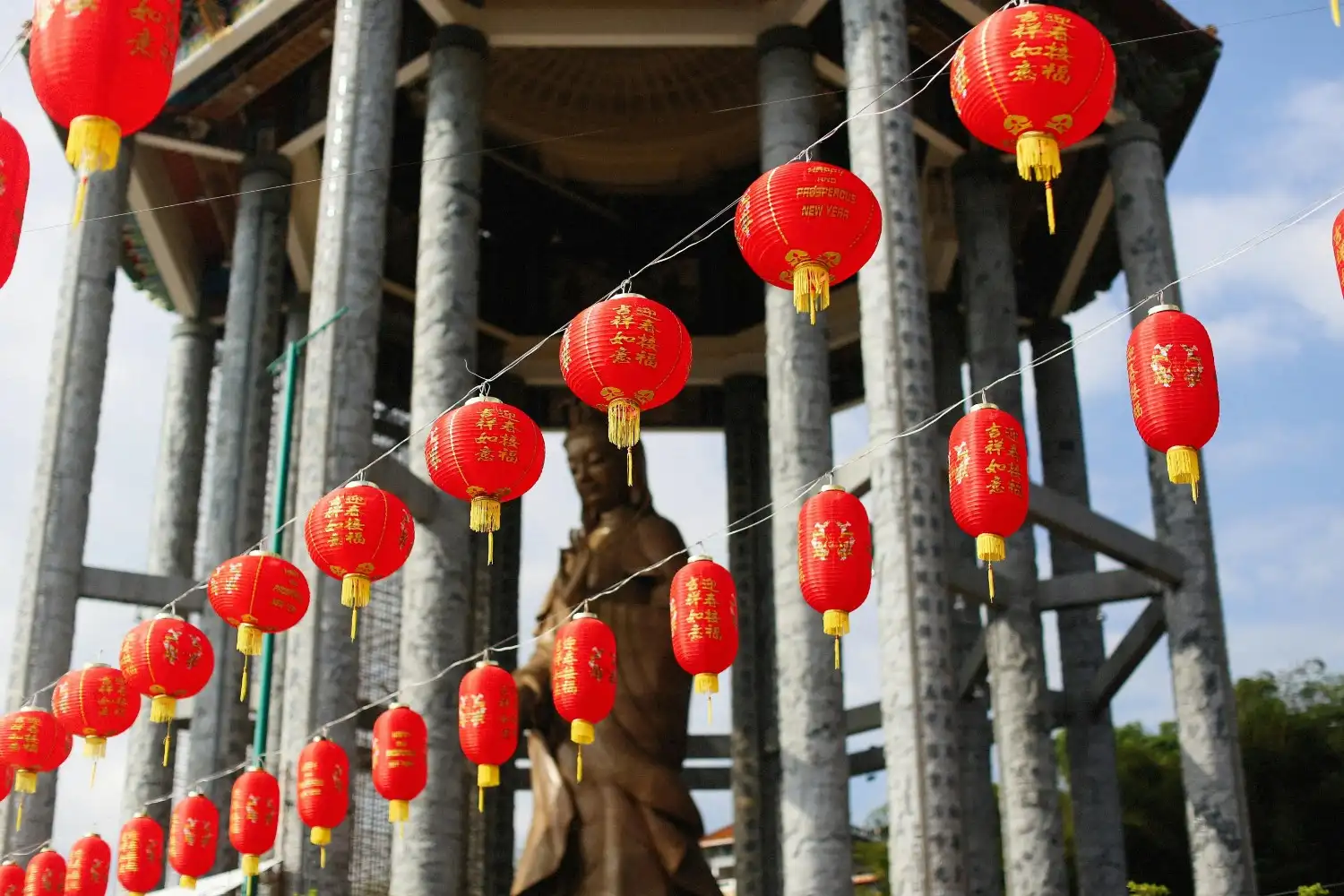
June
Best for: Festivals, beach escapes, and family vacations
June is sunny on the East Coast, perfect for snorkeling and swimming. Kuala Lumpur and Penang host mid-year Malaysia cultural festivals and sales events. It’s also the start of school holidays, so early bookings help secure the best stays.

July
Best for: Diving, shopping, and summer celebrations
July offers dry weather across most regions. The Malaysia off-season travel crowd is small, so beaches stay quiet. Kuala Lumpur’s mega sales draw visitors, while the East Coast remains ideal for divers and island lovers.
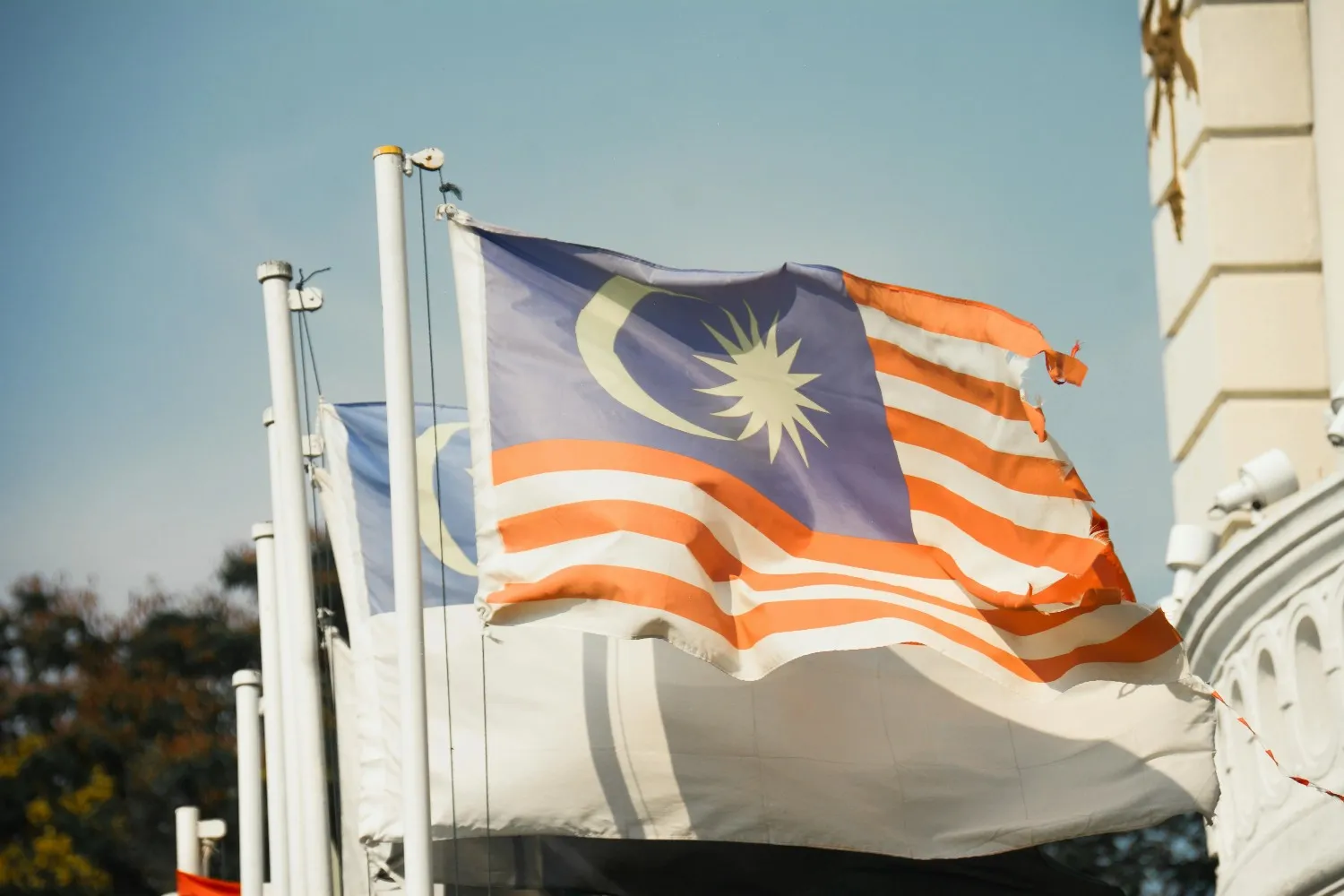
August
Best for: National Day festivities and nature adventures
August celebrates Malaysia’s Independence Day with parades and fireworks. It’s also perfect for Borneo’s nature parks and jungle trails. Warm but pleasant weather makes it great for active travelers and photographers.

September
Best for: Quiet travel and rainforest experiences
September marks the end of the dry stretch in Borneo and the East Coast. It’s perfect for travelers seeking low prices and calm surroundings. Mornings stay clear for sightseeing, making it ideal for Malaysia off-season travel deals.
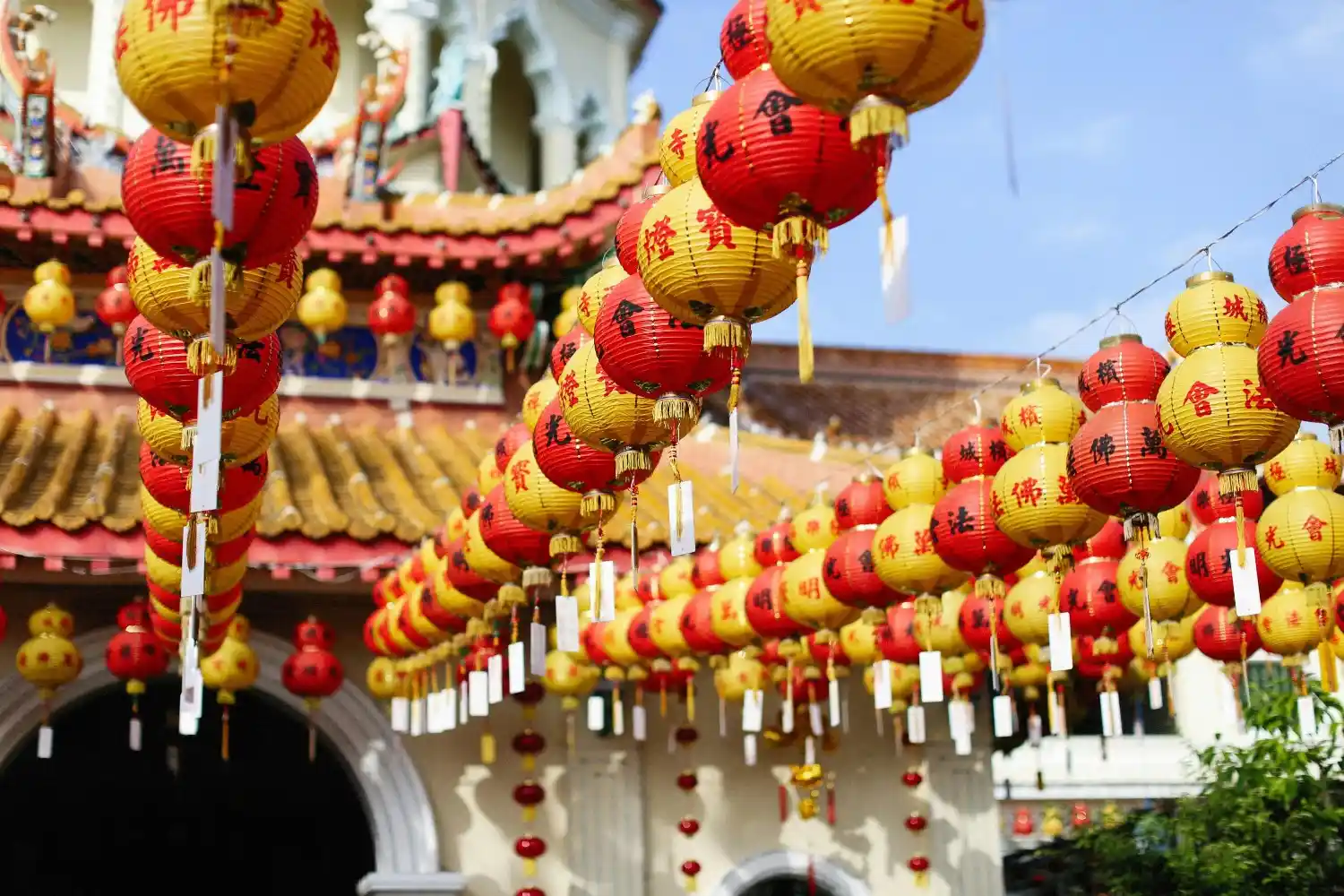
October
Best for: City breaks and cultural highlights
The Malaysia monsoon season begins to reach the East Coast, but Kuala Lumpur, Penang, and Langkawi remain top picks. Deepavali lights up temples and streets, offering a rich cultural experience with mild rain in between sunshine.
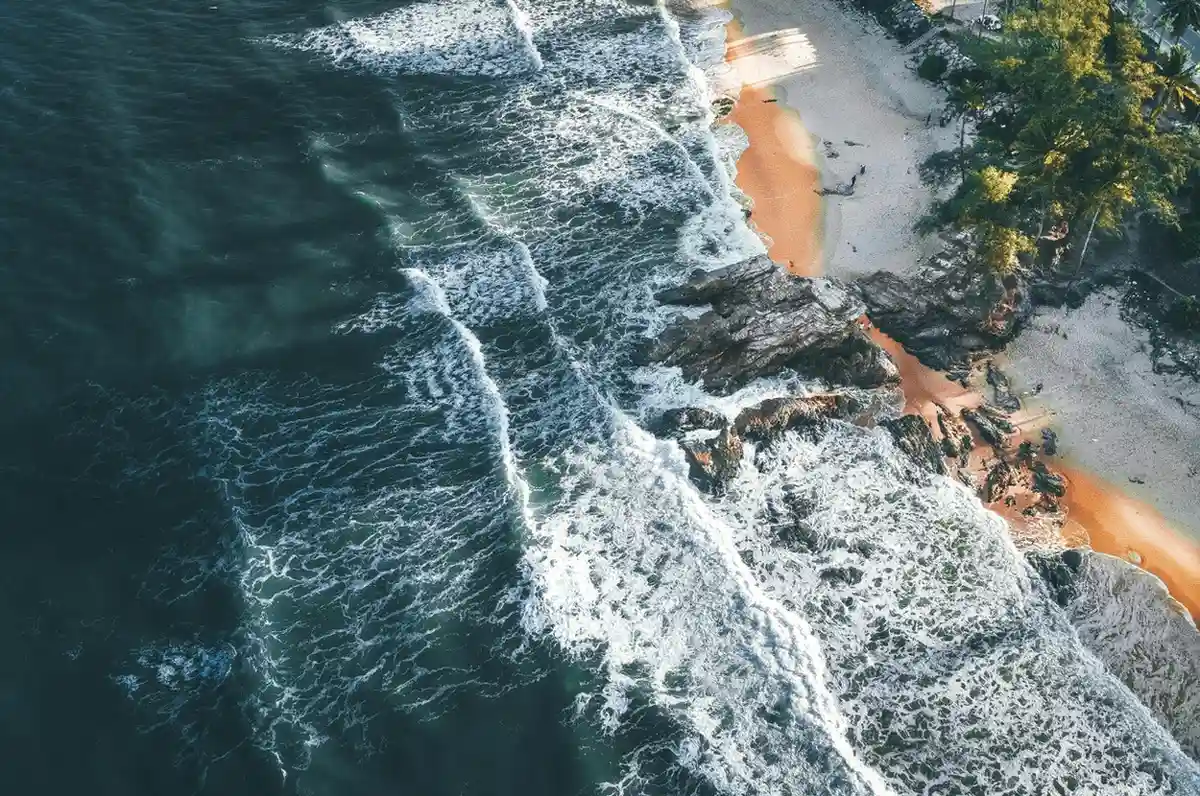
November
Best for: West Coast beaches and cultural exploration
November is sunny on the West Coast, perfect for island getaways in Langkawi or heritage walks in George Town. The East Coast stays wet, but cities remain lively with events and shopping promotions before the holidays.
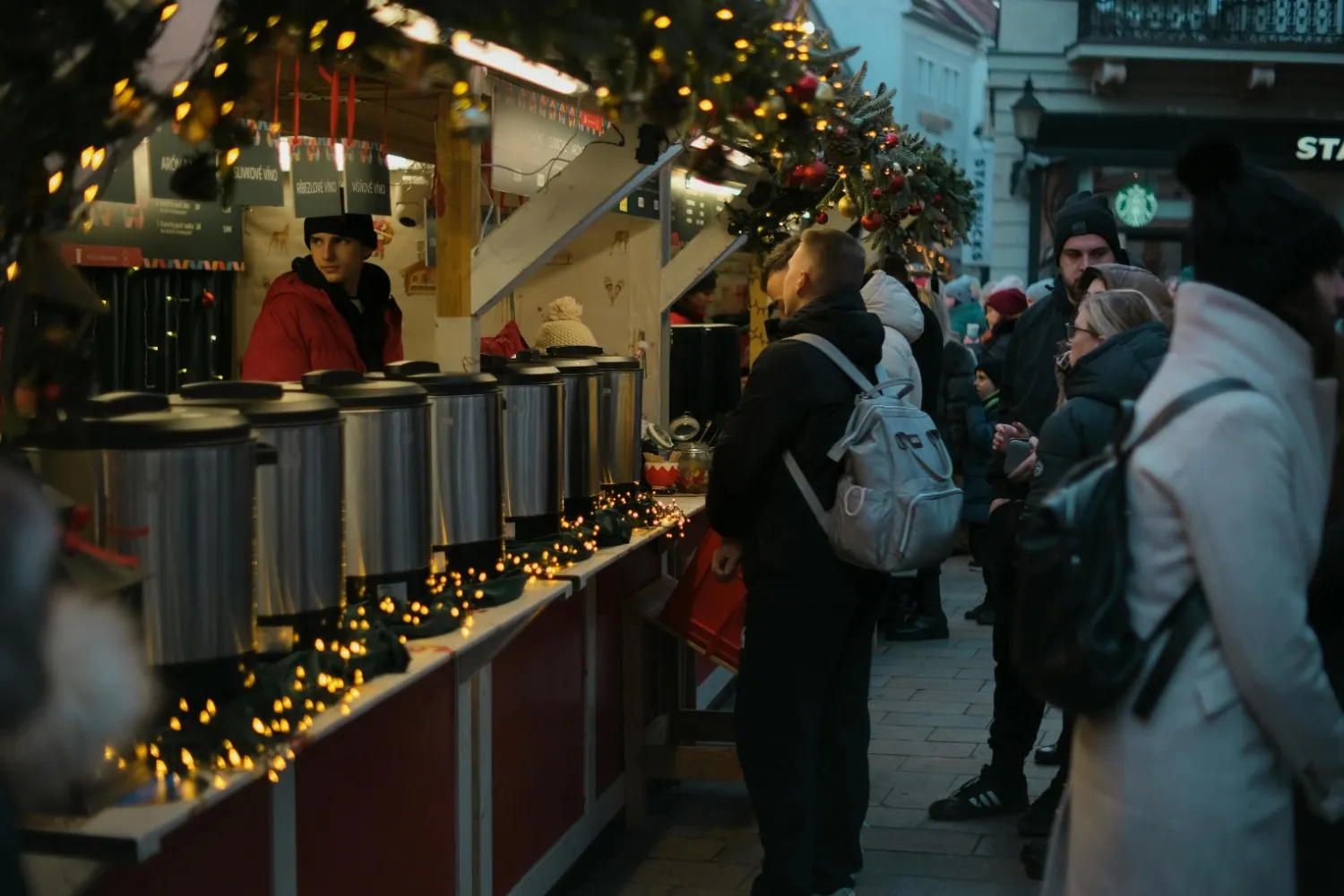
декабрь
Best for: Year-end holidays, Christmas markets, and beach relaxation
December brings sunshine to the West Coast, making it the best time to visit Malaysia for festive celebrations. Penang and Langkawi sparkle with lights, while Kuala Lumpur buzzes with Christmas markets and joyful events.
Malaysia’s Major Festivals and Cultural Celebrations
Malaysia’s calendar is filled with colorful cultural events that reflect its mix of Malay, Chinese, and Indian heritage. Travelers planning their trips around festivals in Malaysia 2025 или Malaysia cultural festivals can experience the country at its most lively and authentic.
January–February: Thaipusam and Chinese New Year
The year begins with two of Malaysia’s biggest celebrations. Thaipusam (usually in January or February) is a deeply spiritual Hindu festival celebrated at Batu Caves near Kuala Lumpur, where devotees carry decorated offerings up steep temple steps. Around the same time, the Chinese New Year fills the air with lion dances, lanterns, and firecrackers. Cities like Penang and Kuala Lumpur host the most vibrant festivities, with family gatherings and open houses.
March–April: Ramadan and Hari Raya Aidilfitri
During Ramadan, Muslim-majority areas across Malaysia become home to evening bazaars selling traditional foods. Hari Raya Aidilfitri, which follows Ramadan, is one of the most joyful times of the year. Homes open to guests, streets light up, and the scent of lemang and rendang fills the air. It’s a special time to experience local hospitality.
May–June: Gawai Dayak and Kaamatan Festivals
In Борнео, these harvest festivals showcase indigenous culture. Kaamatan (Sabah) and Gawai Dayak (Sarawak) feature traditional music, dance, and food, celebrating gratitude for the harvest season. Travelers visiting during this period will find it the best time to visit Малайзия for community-based cultural immersion.
August: National Day (Hari Merdeka)
On August 31, Malaysia celebrates independence with parades, fireworks, and national pride. Major cities like Kuala Lumpur and Putrajaya become especially vibrant, marking it as one of the most exciting Malaysia events 2026 for patriotic displays and public celebrations.
October–November: Deepavali
Deepavali, or the Festival of Lights, celebrates the triumph of light over darkness. Indian neighborhoods such as Brickfields in Kuala Lumpur and Little India in Penang sparkle with oil lamps, sweets, and music. It’s one of the most photogenic and welcoming cultural events of the year.
December: Christmas and Year-End Festivities
Though Malaysia is a tropical nation, Christmas lights shine across shopping streets and resorts. The West Coast, especially Penang and Langkawi, offers a cheerful blend of festive markets and sunny beach holidays.
These Malaysian cultural festivals make the country a destination worth visiting in any season. Each celebration brings new colors, flavors, and traditions, ensuring travelers can always find a reason to return.
Peak Season vs Off-Season Travel in Malaysia
Knowing when the Malaysian tourist season peaks can help travelers balance comfort, crowd levels, and budgets. Each season offers its own rhythm, so the best time to visit Malaysia depends on what kind of experience travelers are after.
Peak Season (December to February, June to August)
These months bring the clearest skies and the busiest resorts. The West Coast—especially Langkawi, Penang, and Kuala Lumpur—sees the highest hotel demand during the dry spell from November to April. June through August is also popular for family trips and school holidays, when beaches and national parks feel lively.
Pros: Perfect beach weather, calm seas, and plenty of festivals.
Cons: Higher prices, crowded attractions, and limited last-minute availability.
Shoulder Season (March to May, September)
The months before and after the main tourist rush are often overlooked but rewarding. Travelers enjoy warm weather, fewer crowds, and lower rates, especially in Kuala Lumpur and Penang. March also marks the start of the East Coast’s diving season, offering a quieter, affordable window to explore.
Pros: Balanced weather, better value for money, smaller crowds.
Cons: Some regions may experience short tropical showers.
Off-Season (October to early December)
The Malaysia off-season travel window aligns with the Malaysia monsoon season on the East Coast. While islands like Redang and Perhentian close temporarily, West Coast cities stay open and vibrant. This period is ideal for travelers seeking peace and discounts.
Pros: Great hotel deals, relaxed pace, cultural festivals like Deepavali.
Cons: Limited ferry routes and occasional rain showers.
In short, Malaysia welcomes visitors year-round, but choosing between peak, shoulder, and off-season travel helps tailor each trip—whether the goal is sunshine, savings, or serenity.
Best Time to Visit Malaysia for Different Activities
Every traveler visits Malaysia for a different reason—beaches, diving, food, culture, or city fun. The country’s weather shifts by coast, so the best time to visit Malaysia often depends on what you plan to do. Here’s how to match your interests with the ideal months.
For Beaches & Islands
If sunny shores are the goal, the best time for beaches in Malaysia is from November to April on the West Coast (Langkawi, Penang). Calm seas and golden sunsets make this period perfect for swimming, sailing, and island hopping.
On the East Coast, March to October is the sweet spot for crystal-clear water and marine life. This is also the diving season in Malaysia, ideal for coral reef exploration around Redang, Perhentian, and Tioman Islands.
For Rainforest & Wildlife
Nature lovers will find Borneo most rewarding between March and September, when the forests of Sabah and Sarawak are drier and more accessible. It’s also the best time to visit for orangutan sightings and Mount Kinabalu hikes.
For City Travel & Cultural Tours
Urban travelers can enjoy the Kuala Lumpur climate и Penang weather almost year-round. The dry months from November to April are especially comfortable for exploring street art, museums, and night markets. Festivals like the Chinese New Year and Thaipusam add local flavor.
For Shopping & Food Trails
The mid-year Malaysia tourist season (June to August) is prime time for the Great Sale in Kuala Lumpur and Penang’s famous food festivals. Shopping in Kuala Lumpur malls is a pleasure thanks to air conditioning and indoor attractions.
For Budget or Quiet Trips
If your goal is to escape crowds, the Malaysia off-season travel months — September to November– offer low prices and peaceful vibes. You may get afternoon showers, but major cities and highland retreats stay pleasant for sightseeing and café hopping.
From sandy shores to cool highlands, Malaysia has a season for every mood. With this activity-based guide, travelers can confidently plan the best time to travel to Malaysia for what they love most without worrying about missing out.
Practical Travel Tips for 2026 Visitors
Planning a trip around the best time to visit Malaysia is only part of the journey; knowing a few smart travel habits helps make every visit smoother. Whether you’re traveling for beaches, culture, or food, these Malaysia travel tips keep your trip relaxed and well-organized.
1. Booking and Budgeting
- Flights and Hotels: Reserve early if you plan to visit during the Malaysian tourist season (December–February or June–August). Off-season travelers (September–November) can enjoy discounts of up to 30%.
- Валюта: The Malaysian Ringgit (MYR) is widely accepted. Use local ATMs or money changers for the best rates.
- Connectivity: Buy a local SIM card at the airport for affordable data and smooth navigation.
2. Packing Smart for Malaysia’s Weather
- Lightweight, breathable clothing works best since humidity is high year-round.
- Always carry a small umbrella or rain jacket, especially during the Malaysian monsoon season.
- Comfortable walking shoes are essential for city tours and rainforest trails alike.
3. Cultural Etiquette
- Dress modestly when visiting mosques or temples.
- Use your right hand for giving or receiving items, as it’s considered polite in local custom.
- A friendly smile goes a long way—Malaysians appreciate courteous visitors.
4. Getting Around
- West Malaysia: Buses, trains, and domestic flights connect cities efficiently.
- East Malaysia (Borneo): Local flights link towns, while guided tours are best for remote areas.
- Rideshare apps like Grab make short trips simple and inexpensive.
5. Health & Safety
- Tap water isn’t always drinkable — stick to bottled water.
- Mosquito repellent is useful for outdoor and island stays.
- Malaysia is generally safe, but always keep an eye on your belongings in crowded places.
6. Planning Around Festivals
Use the Malaysia cultural festivals calendar to enrich your experience. Traveling during events like Chinese New Year, Hari Raya, or Deepavali adds cultural depth, but book accommodations early since demand rises quickly.
These simple Malaysia travel tips make planning for 2026 easy and enjoyable. With the right timing, packing, and awareness, visitors can focus on what really matters — soaking up Malaysia’s colors, flavors, and warmth.
Quick Summary – The Best Time to Visit Malaysia
Malaysia is a year-round destination, but each region shines at different times. By understanding how weather and festivals align, travelers can pick the best time to visit Malaysia based on what they want most—sunshine, adventure, or culture.
| Область | Ideal Months | Highlights |
|---|---|---|
| West Coast (Kuala Lumpur, Penang, Langkawi) | November to April | Dry weather, calm seas, lively city events |
| East Coast (Perhentian, Redang, Tioman) | March to October | Crystal clear water, diving, and island life |
| Borneo (Sabah, Sarawak) | March to September | Rainforest treks, wildlife, festivals |
Best Times by Experience
- Beaches & Islands: November–April on the West Coast, March–October on the East Coast
- Diving & Nature: March–September (Borneo and East Coast)
- Festivals & Culture: January–February (Thaipusam, Chinese New Year) and August–November (Merdeka, Deepavali)
- Budget Travel: September–November for off-season savings
- Family Vacations: June–August, during the mid-year holidays
Quick Takeaway
For most visitors, the best months to travel to Malaysia are March through April или November through February—when rainfall is lighter, skies are clear, and festivals add color to every city. But even during the Malaysian off-season travel months, travelers can find hidden gems, great prices, and welcoming local experiences.
No matter when you go, Malaysia rewards curiosity. Each region and season offers something new, so plan smart, pack light, and enjoy the journey.
Plan Your Perfect Malaysia Experience with Embassy Alliance
Whether you’re planning a family trip, a corporate retreat, or an educational journey, Посольский альянс helps you explore Malaysia the smart way. Our travel experts design seamless programs that blend culture, comfort, and adventure so every journey feels unforgettable.
Start Planning with Embassy AllianceFAQs About the Best Time to Visit Malaysia
The best month to visit Malaysia depends on which region travelers plan to explore. The West Coast (Langkawi, Penang, Kuala Lumpur) enjoys sunny skies from November to April, while the East Coast (Perhentian, Redang, Tioman) is at its best between March and October. These months offer great weather, clear seas, and ideal sightseeing conditions.
The Malaysian monsoon season affects the East Coast from November to March and brings heavier rain to islands like Redang and Tioman. Meanwhile, the West Coast remains mostly dry, making it the best time to visit Malaysia for beaches and city trips.
Most resorts on Perhentian, Redang, and Tioman reopen between March and April, once the Malaysian monsoon season ends. These islands then enjoy perfect diving and snorkeling conditions through October, making this period the best time to travel to Malaysia for ocean adventures.
The best time to visit Borneo for wildlife is between March and September. This stretch has fewer downpours, clearer skies, and better chances to see orangutans and proboscis monkeys in their natural habitats.
Major Malaysian cultural festivals include Thaipusam (January or February), Chinese New Year (January or February), Hari Raya Aidilfitri (April or May), Gawai Dayak (June), Merdeka Day (August), Deepavali (October or November), and Christmas (December). Travelers can plan trips around these events for colorful local experiences.
The Malaysian tourist season peaks from December to February and again from June to August. These months bring clear weather on the West Coast and are perfect for family holidays. Travelers should book hotels and flights early to get the best rates.
The most affordable months are between September and November, during the Malaysia off-season travel period. Prices for hotels and flights drop, attractions are quieter, and cities like Kuala Lumpur and Penang remain enjoyable despite light showers.
Malaysia stays warm year-round, with temperatures between 24°C and 33°C. Even during the Malaysia monsoon season, the air remains humid but comfortable for sightseeing if travelers plan morning activities.
Essential Malaysia travel tips include packing light, breathable clothing, using sunscreen, and carrying a small umbrella for short rains. Booking early for peak months and respecting local customs at religious sites help ensure a smooth experience.
Festival lovers will enjoy January to March for Malaysia’s cultural festivals like Thaipusam and Chinese New Year, while August to November brings Merdeka and Deepavali. Aligning your trip with these events is one of the best ways to visit Malaysia for cultural immersion.
Kuala Lumpur’s climate stays consistent all year, with short afternoon showers that quickly clear. Penang’s weather is similar, with slightly less rain from November to April. Both are great choices for city sightseeing and food tours, any month of the year.
The diving season in Malaysia runs from March to October on the East Coast. Calm waters and high visibility make this period ideal for underwater adventures around Redang and Perhentian Islands.
Absolutely. Malaysia is family-friendly with safe cities, good transport, and clean beaches. Families visiting during the Malaysian tourist season (June to August) enjoy great weather, fun attractions, and easy day trips between islands and cities.
Final Thoughts – Planning Your Malaysia Trip
By now, travelers can see that choosing the best time to visit Малайзия is less about avoiding bad weather and more about matching the season to their travel goals. This tropical nation offers something year-round, from vibrant city festivals to quiet island escapes, and the right timing simply enhances each experience.
For 2026, plan — especially if your trip overlaps with popular Malaysia cultural festivals like Chinese New Year, Hari Raya, or Deepavali. Booking flights and hotels early ensures better rates and availability, especially along the West Coast during the Malaysian tourist season.
Those who prefer adventure and nature should look toward Borneo’s dry stretch (March to September) for rainforest treks and wildlife viewing, while culture and food enthusiasts can visit Penang or Kuala Lumpur any month of the year.
If peace, savings, and a slower pace sound appealing, the Malaysia off-season travel months (September to November) offer the perfect balance — with gentle rain, cozy resorts, and fewer crowds.
In the end, Malaysia isn’t just a destination; it’s an ongoing discovery. Whether you’re planning your first visit or returning for new adventures, 2026 bring countless opportunities to explore, celebrate, and fall in love with this incredible country all over again.














